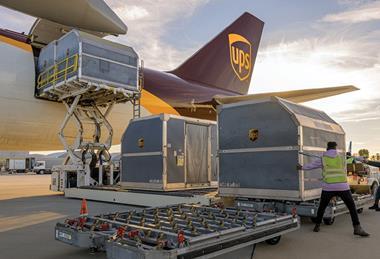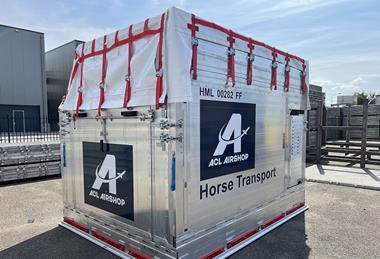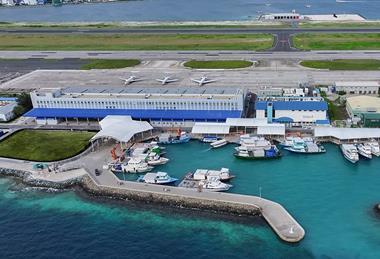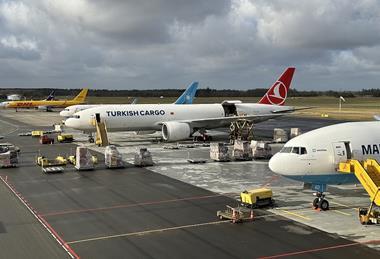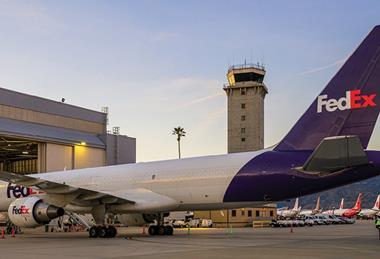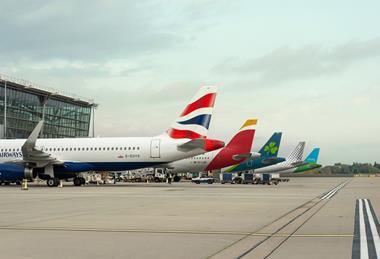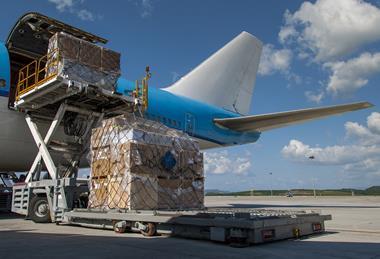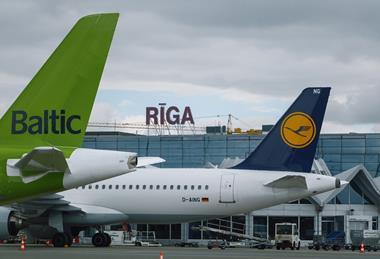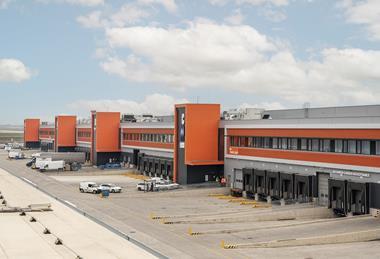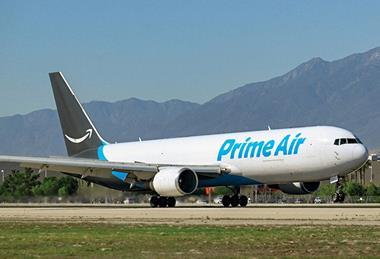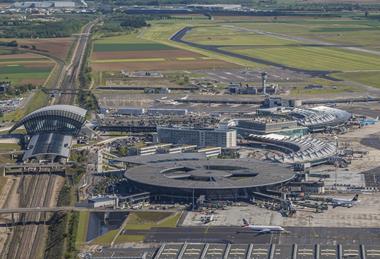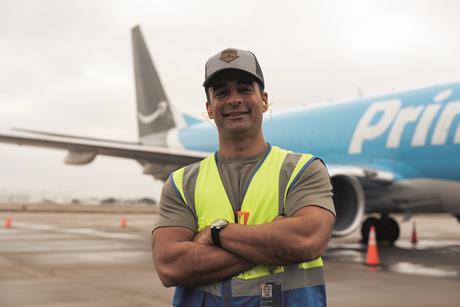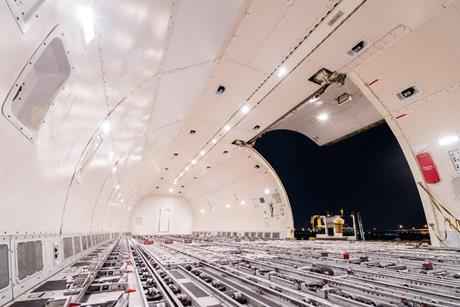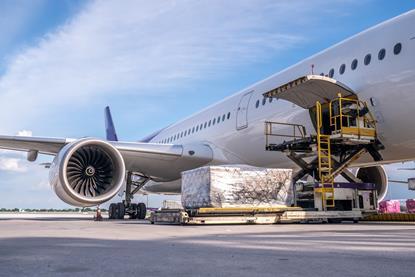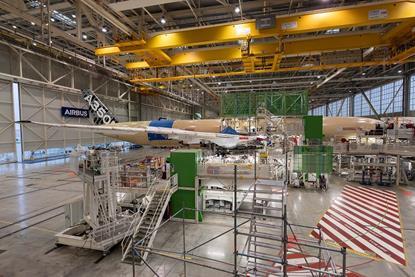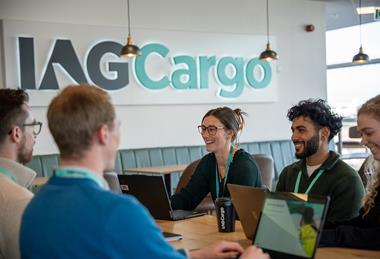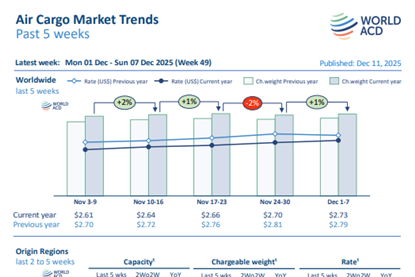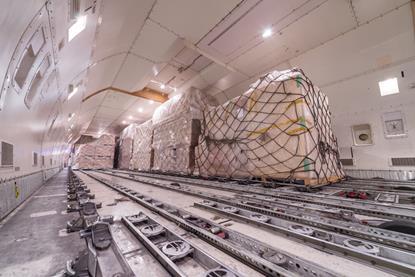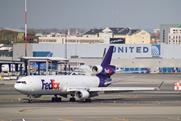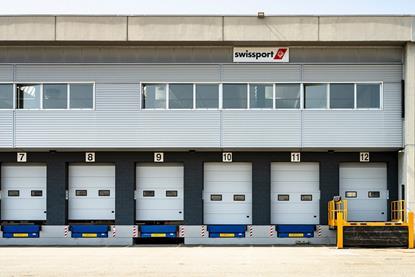News
European Union confirms new custom duty on e-commerce packages
EU to charge €3 per item on e-commerce parcels under €150 from third countries, closing duty-free loophole ahead of 2028 customs reform.
- Previous
- Next
E-commerce elevates Glasgow Prestwick
Scottish airport adds three Chinese e-commerce carriers this year as volumes outperform general cargo amid shifting trade flows from US tariff changes
Amazon Air Cargo: primed for growth
Amazon Air Cargo has doubled its customer base since launching third-party services 12 months ago, with Latin America emerging as key growth market
A year of highs and lows for charter brokers
Tariff-related surges in demand gave the charter market a boost in 2025, but the year has not been without its challenges
Air cargo employees look for greener pastures
Edge Insight survey reveals widespread dissatisfaction among air cargo professionals, with stress and limited career advancement key concerns
Forwarders prepare for another year of volatility
Freight forwarders are preparing for the new year by expanding into new trade lanes, reducing costs, and investing further in technology
Large widebodies to surge over coming decades
Global jet freighter fleet set to expand 50% by 2044 as large widebodies gain market share over mid-sized aircraft, Transport Research Advisory forecasts
- Previous
- Next
WorldACD: Spot rates on the rise in December
International spot rates increased 3% to $3.01 per kg in the first week of December, led by a 11% rise from Africa origins, though peak season remains subdued
Global airfreight rates climb, but remain below last year
Global airfreight rates gained 6.5% last week driven by China-Europe and China-US lanes, though BAI remains 2.3% below year-ago levels
IATA: Cargo volumes to rise 2.4% in 2026
Air cargo volumes expected to grow 2.4% to 71.6m tonnes in 2026, with revenue reaching $158bn, IATA forecasts
European Union confirms new custom duty on e-commerce packages
EU to charge €3 per item on e-commerce parcels under €150 from third countries, closing duty-free loophole ahead of 2028 customs reform.
Negotiable air cargo document adopted by the UN
Convention enables cargo to be bought, sold or used as collateral during transit across rail, road and air modes, addressing trade finance gap
Prestwick comes top in airfreight at Logistics UK awards
Glasgow Prestwick airport secured the air freight business of the year title at Logistics UK's annual awards, beating four other companies
More air cargo capacity needed to boost supply chains in Sub-Saharan Africa
Sub-Saharan Africa receives just 2% of global cargo capacity despite exponential population growth and increasing demand for medicines
FedEx expects to incur costs of $175m due to MD-11F grounding
Carrier shifts volume to alternative aircraft and third-party lift as 25 MD-11Fs remain out of service through peak season
Hong Kong Air Cargo resumes Singapore flights and adds Chennai
Carrier launches scheduled Singapore service and transitions Chennai from charter ops, strengthening Asian network with consistent frequency
GA Telesis leases eighth 737-800SF conversion
Lessor places AEI passenger-to-freighter conversion with South Pacific operator as part of 12-unit conversion programme initiated in 2020
Oman Air Cargo looks ahead to new Southeast Asia service
Carrier adds four-times-weekly 737 MAX service to Singapore from 2 July, targeting high-tech goods and perishables via key Asia gateway.
BIFA urges UK forwarders to incorporate new Standard Trading Conditions
Freight forwarders have two weeks to adopt revised standard trading conditions, reflecting increased customs activity and commercial risks
CEVA swoops on project logistics firm Fagioli Group
CMA CGM-owned CEVA Logistics has agreed to acquire project logistics specialist Fagioli Group as part of its strategy to expand in strategic sectors
Forwarders prepare for another year of volatility
Freight forwarders are preparing for the new year by expanding into new trade lanes, reducing costs, and investing further in technology
DHL Express does deal with US SAF producer Phillips 66
Express carrier secures three-year sustainable aviation fuel supply from US producer, targeting 737,000 metric tons CO2 reduction at LAX hub
Fiege wins deal for cargo handling at Cologne Bonn Cargo Center
Ground handler Fiege Air Cargo Logistics will assume all general cargo handling at Cologne Bonn from 1 January, replacing dnata.
Swissport Malpensa scales up to 100 tonnes of cargo per day
Ground handler increases daily volumes from nine tonnes to 100 tonnes at newly launched MXP facility in five-month operational ramp-up
Prestwick comes top in airfreight at Logistics UK awards
Glasgow Prestwick airport secured the air freight business of the year title at Logistics UK's annual awards, beating four other companies












